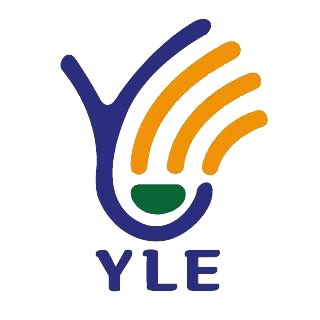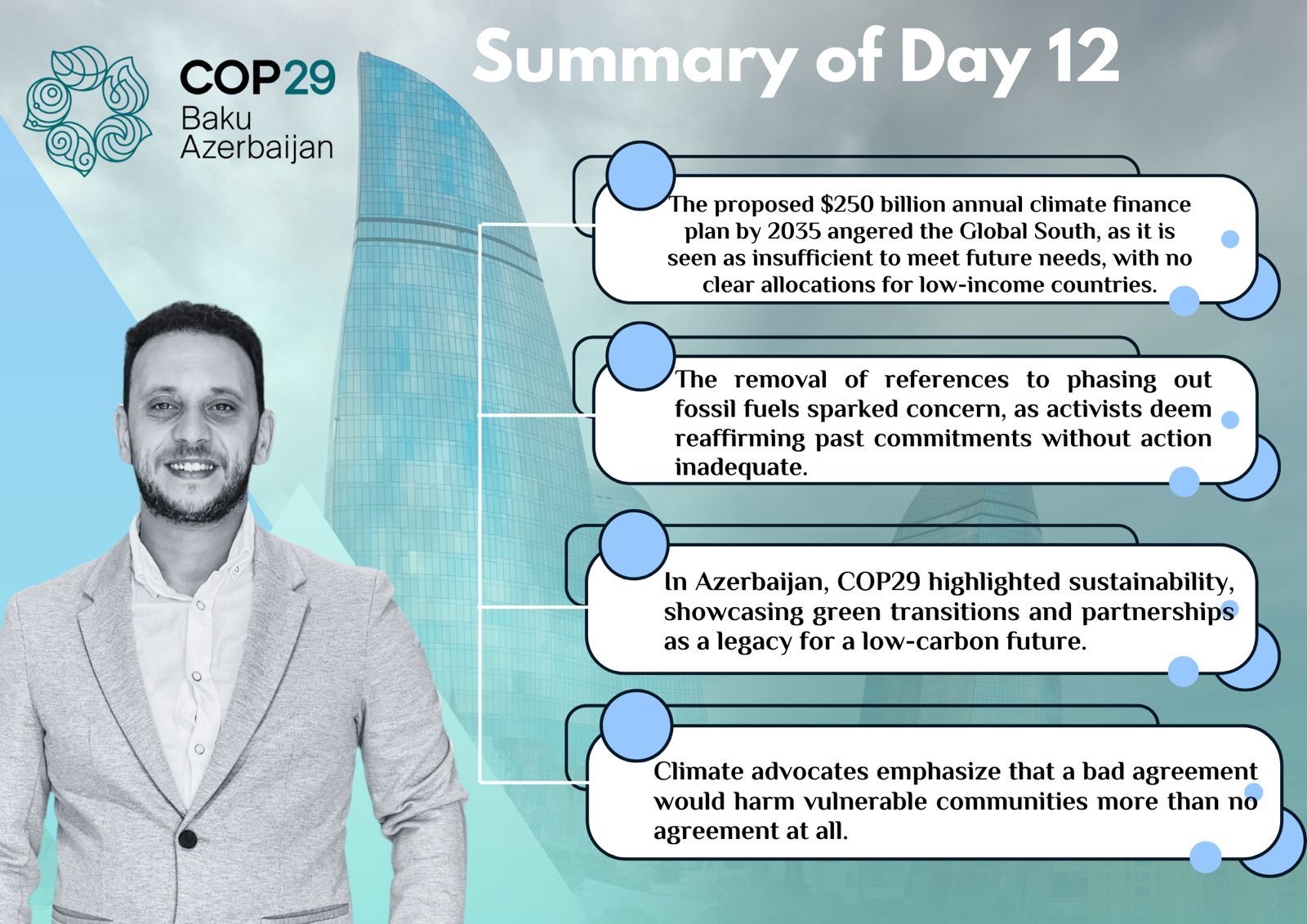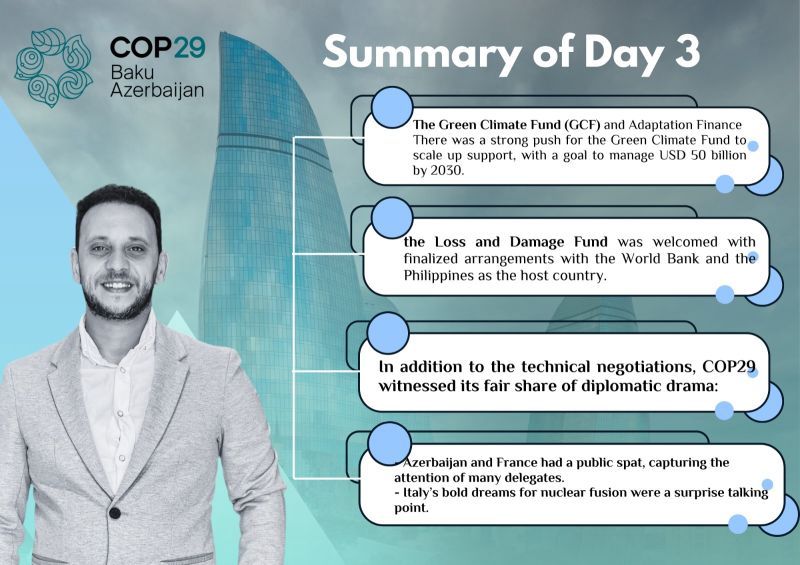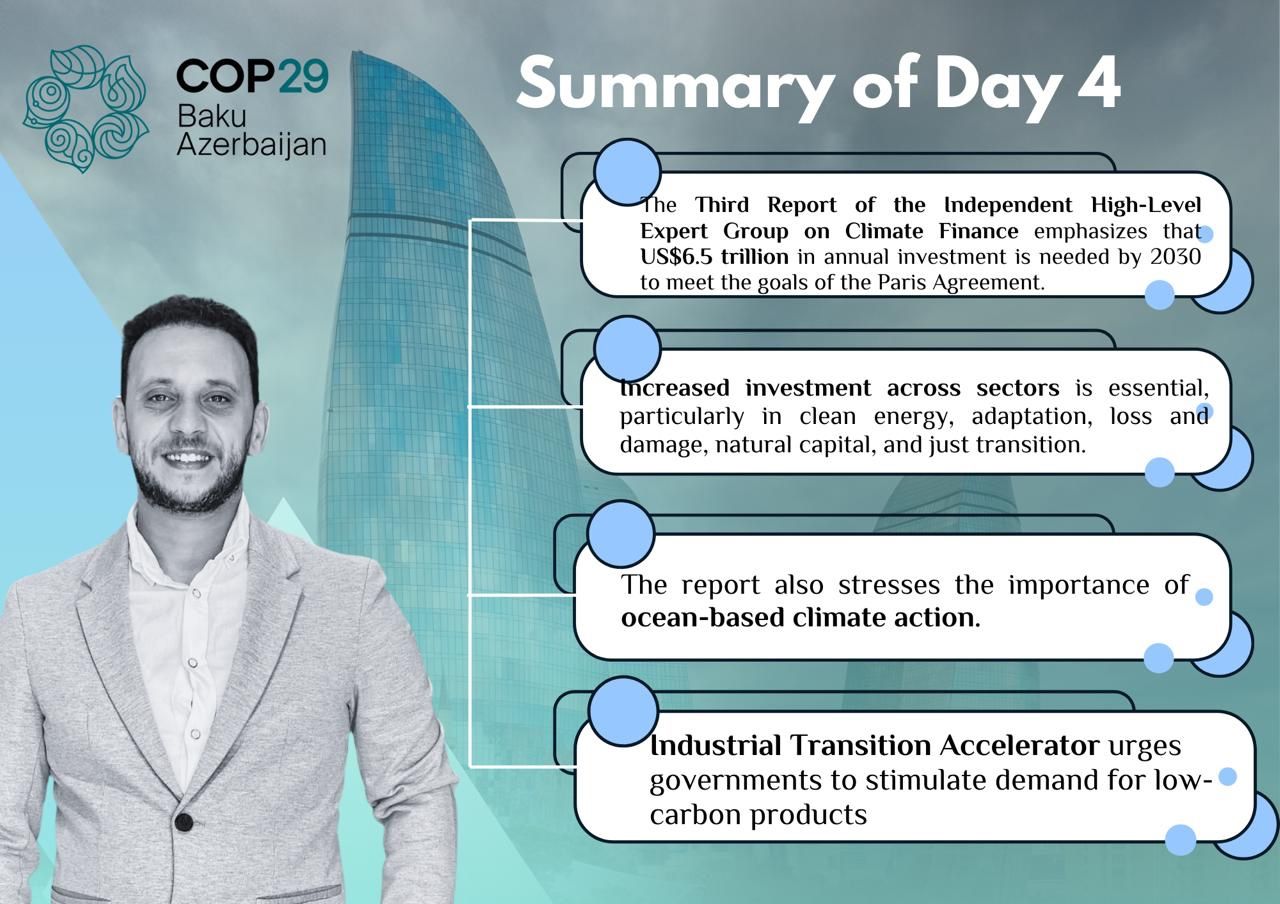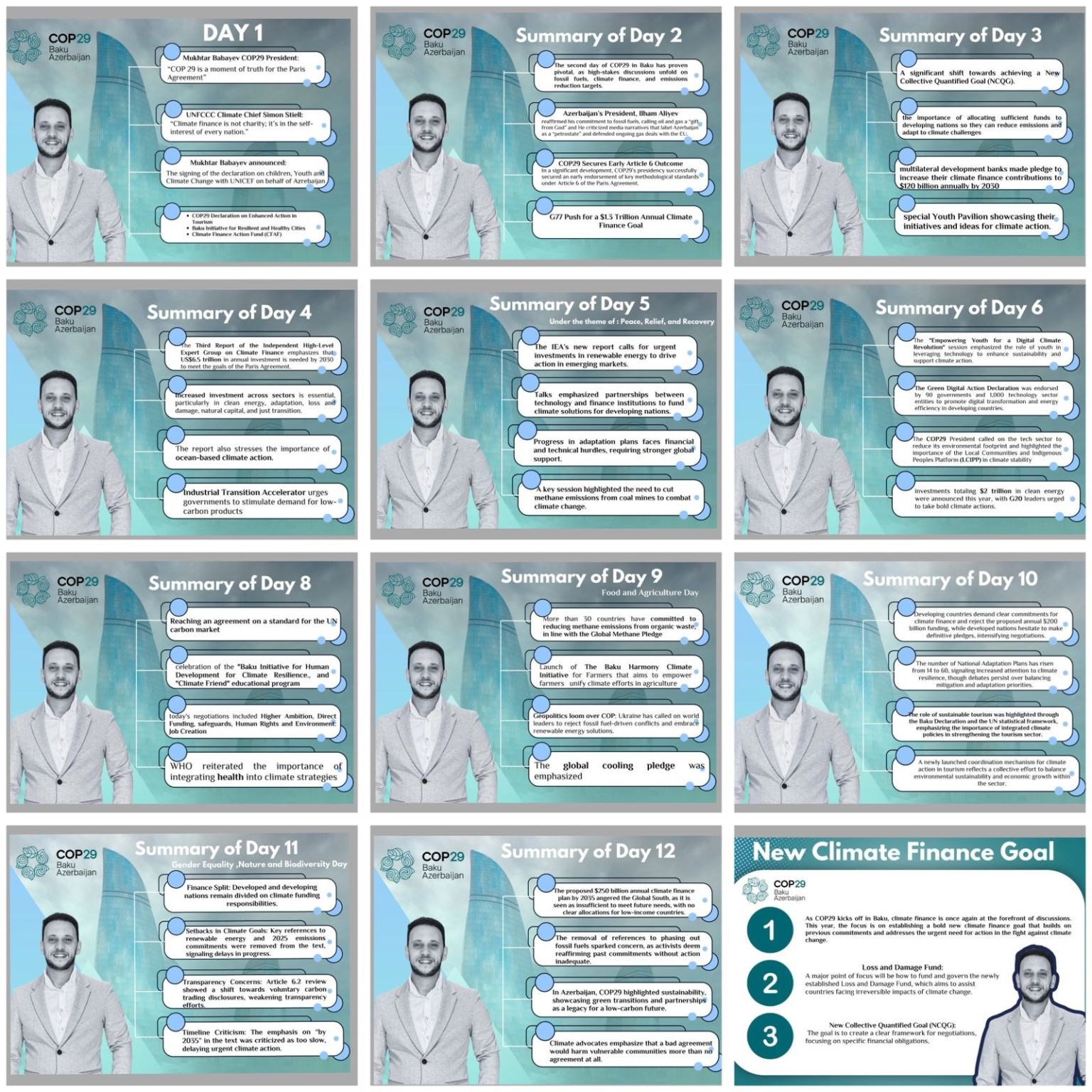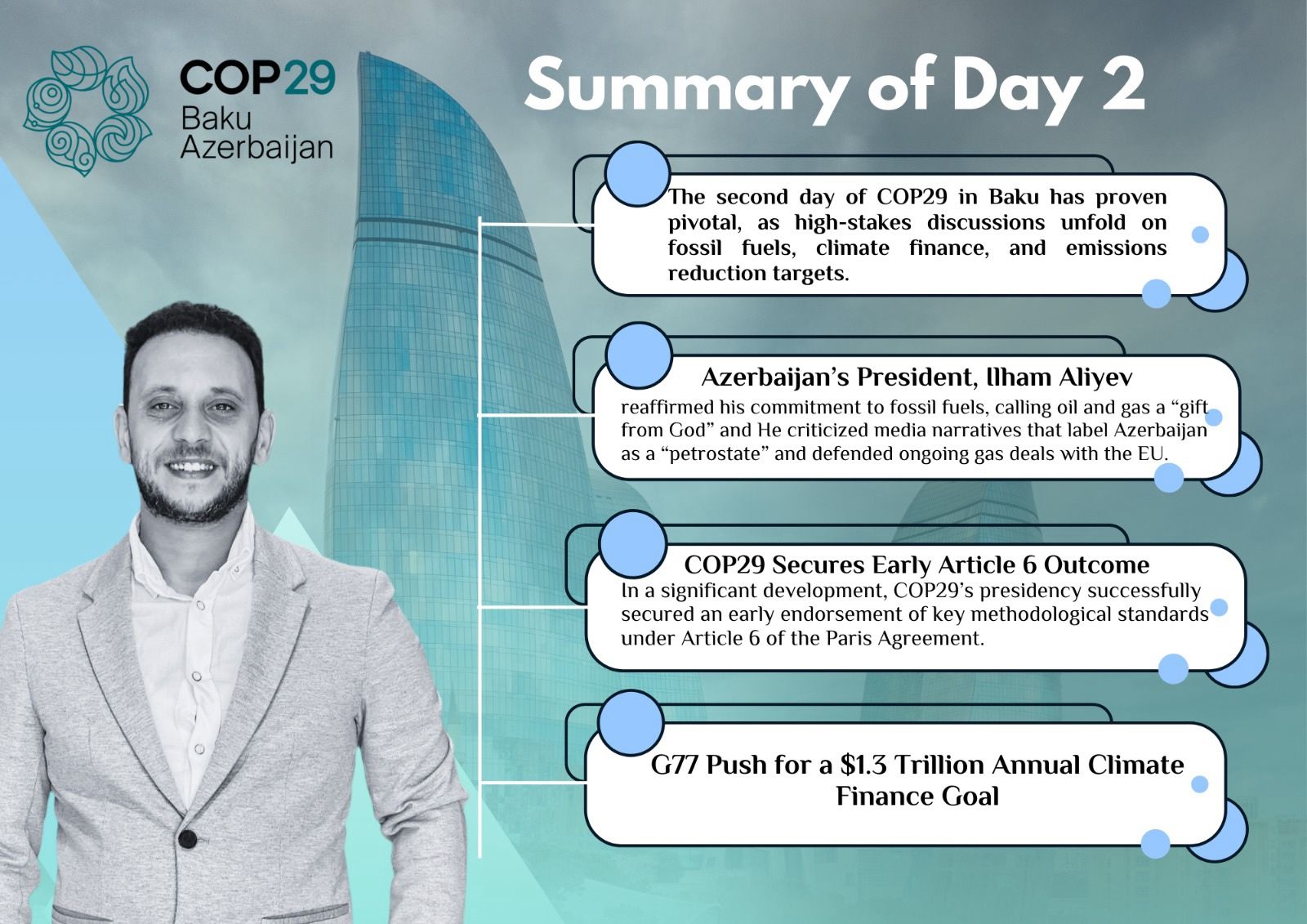As the curtain falls on COP29, I can’t help but feel a sense of fatigue and frustration. It’s the last day, and we still haven’t reached a declaration—not for PACO, not for COP29. Even as the clock ticks past today, November 23, the uncertainty lingers: will we have a declaration at all?
The proposed $250 billion annual climate finance package (by 2035) has sparked widespread anger, especially among Global South nations, who demand more than vague promises. Low-income countries are vocal about the absence of specific allocations tailored to their needs, while the Global South is mobilizing, determined to make their voices heard.
Adding to the tension, the removal of language on transitioning away from fossil fuels has drawn sharp criticism. While the draft mentions reducing carbon emissions, it feels like reaffirming old agreements without delivering real action. The warning is clear: a weak deal risks undoing years of progress for vulnerable communities.
Reflecting on yesterday’s developments, the draft for the New Collective Quantified Climate Goal (CMA 6, item 11a) leaves much to be desired:
- The $250 billion climate funding target by 2035 is insufficient and shows continued neglect of the urgent needs of Africa and other developing regions.
- Articles 7-8 fail to address immediate climate impacts from 2025 and instead push timelines to 2035, when vulnerable countries are already suffering catastrophic losses.
- The focus on “wide-ranging sources” and “innovative tools” risks deepening debt burdens instead of providing direct, accessible financing.
- Critical issues like loss and damage (Articles 9, 18-19) and the lack of a clear climate finance definition (Articles 15, 20-24) hinder transparency, effective tracking, and equitable access to funding.
- Structural barriers, including high transaction costs and co-financing requirements (Articles 21-24), remain unaddressed, making it harder for African countries to benefit from existing funding.
- Lastly, any delays in aid or increased responsibilities on vulnerable nations (Articles 25-26) should be rejected outright, and marginalized voices—including women and youth—must be part of the decision-making process.
Despite these challenges, COP29 has showcased glimmers of hope. In the Green Zone, COP29’s legacy has highlighted Azerbaijan’s strides in sustainability, using the conference to accelerate green transitions and forge global partnerships.
The Global South is in action, and their demand is simple: a fair and effective agreement that centers climate justice. Anything less would betray the shared future we’re all fighting for.
We continue the work. The journey doesn’t end here. Let’s rise to the challenge and ensure every voice is heard.
